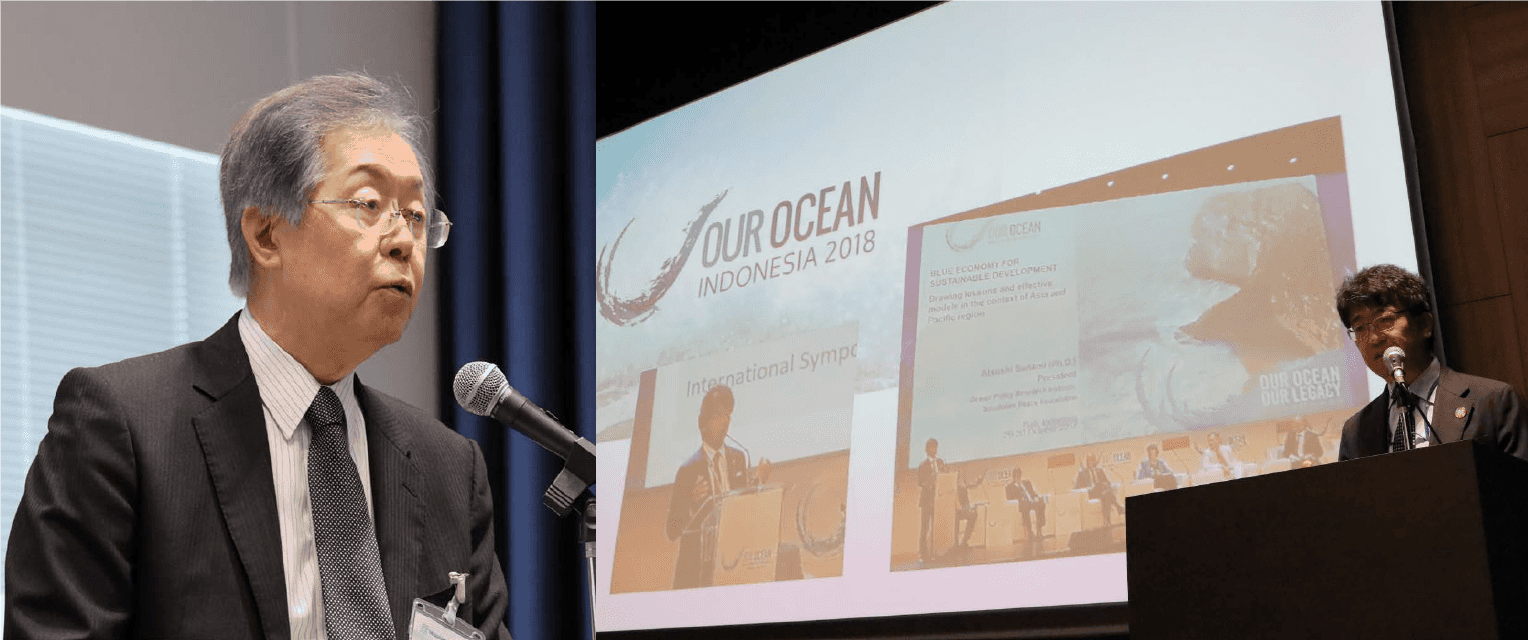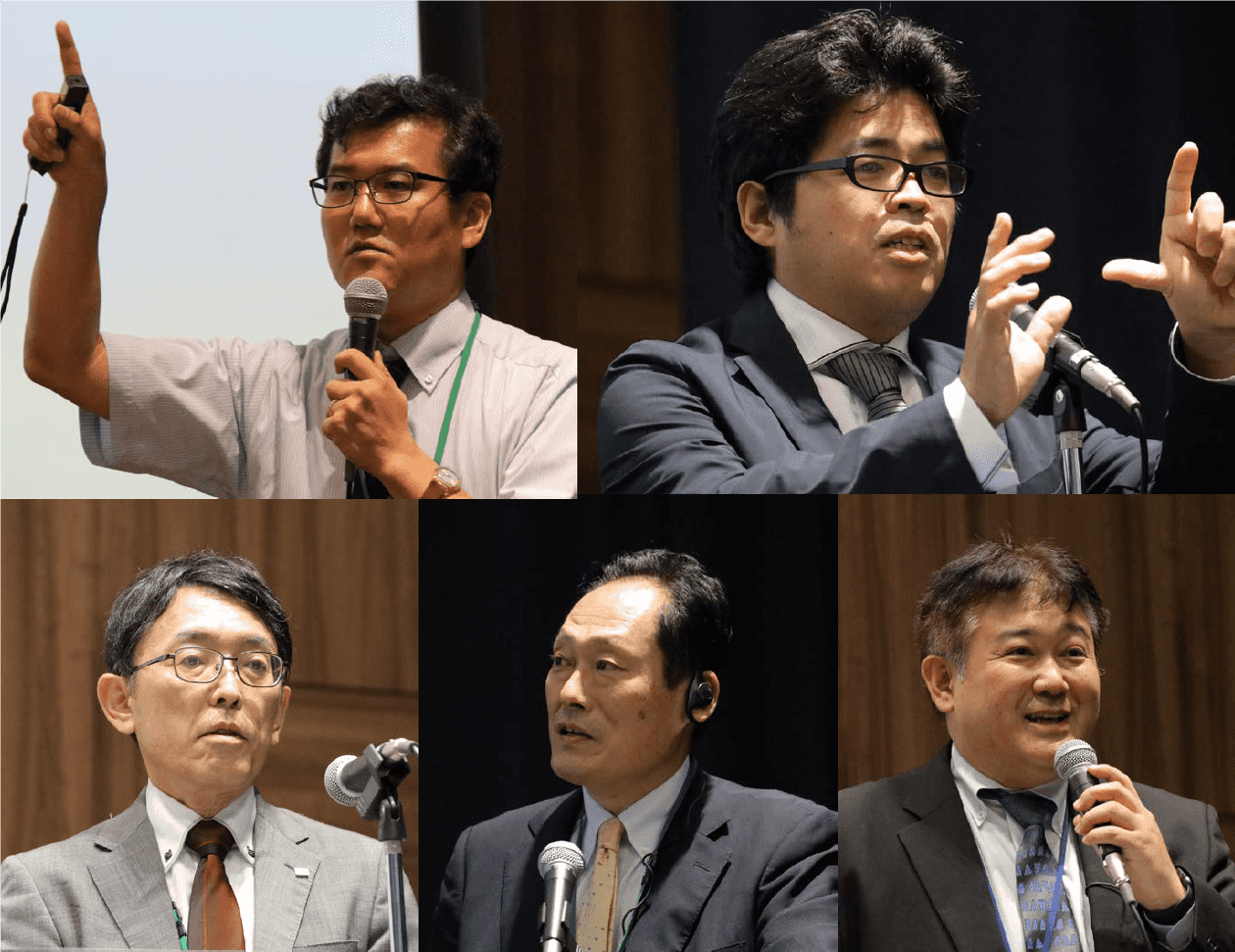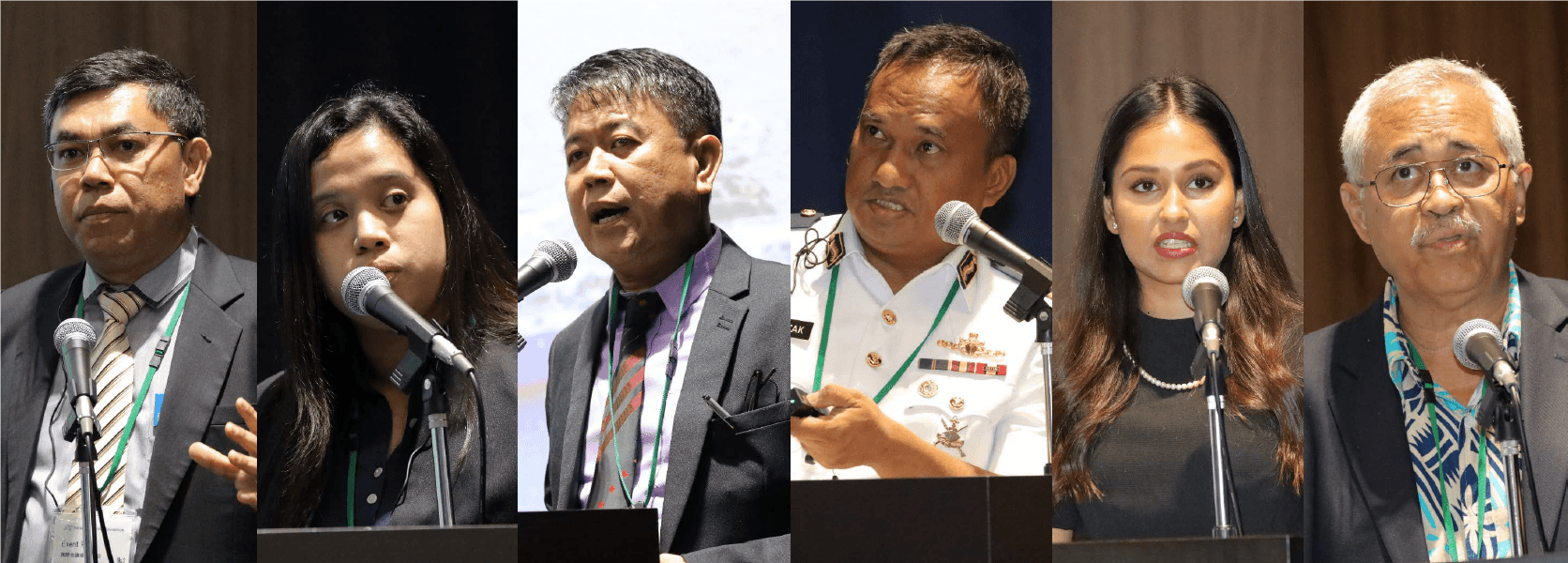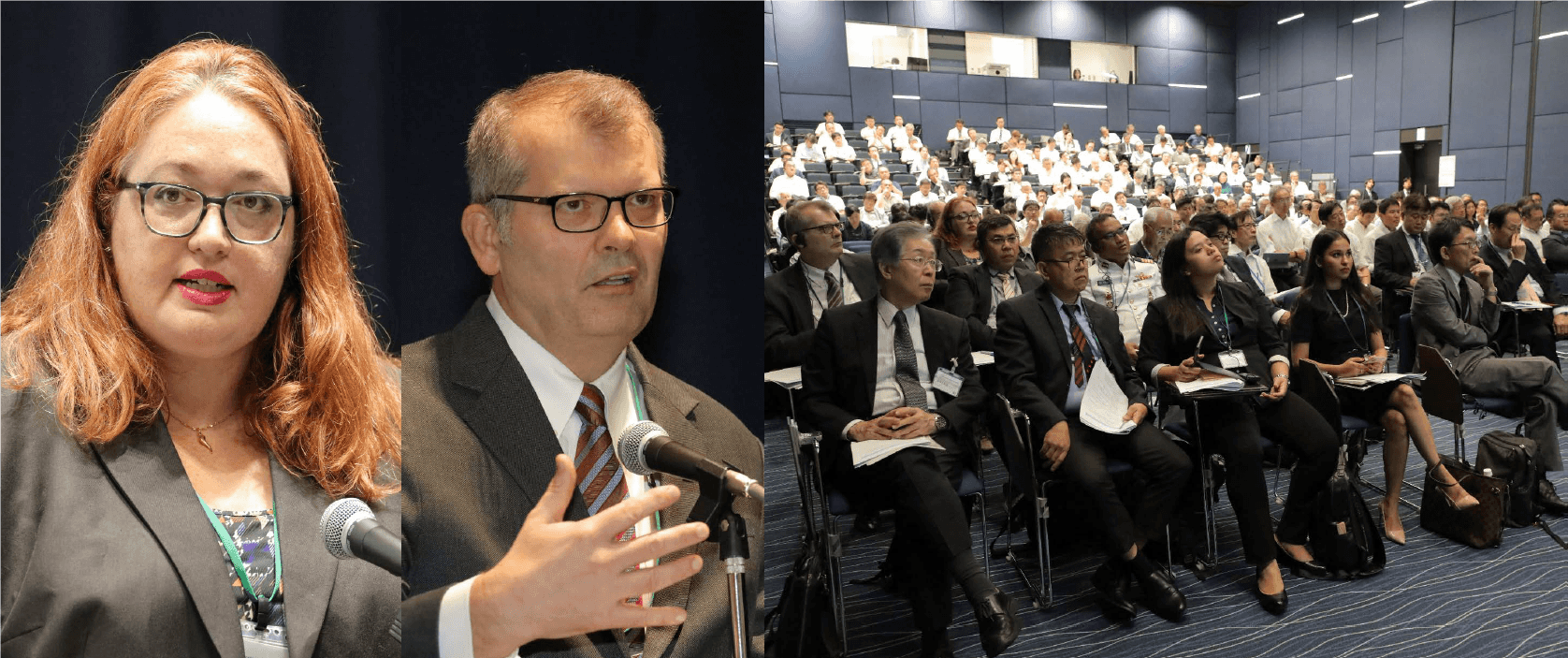News
International Symposium on Maritime-Space Cooperation in the Asia-Pacific Region
The International Symposium on Maritime-Space Cooperation in the Asia-Pacific Region was held on October 4, 2019 at the Sasakawa Peace Foundation. As with the previous symposium held on February 8, the symposium was co-hosted by SPF’s Ocean Policy Research Institute (OPRI-SPF) and the Space Policy Research Center of the Japan Space Forum (JSF), attracting around 260 participants.
Representing the organizers, Mr. Toichi Sakata, President of the Japan Space Forum, and Mr. Atsushi Sunami, President of OPRI-SPF, delivered the opening remarks. Mr. Sakata said that Japan’s Third Basic Plan on Ocean Policy included the strengthening of marine space cooperation and maritime domain awareness (MDA), and expressed hope that the discussion on marine space cooperation would be further promoted at the symposium. In addition, Mr. Sunami presented the trends and challenges regarding international discussions on illegal, unreported and unregulated (IUU) fisheries, the theme of the symposium, and introduced that discussions on creating a Basic Plan on Space Policy have begun within the Committee on National Space Policy.

Opening remarks (From left) JSF President Toichi Sakata, OPRI-SPF President Atsushi Sunami
The first half of the symposium included three lectures introducing advanced space technology trends in Japan that demonstrated the possibility of efficient and effective ocean monitoring using space technology in the future. First, Mr. Ichiro Naito, Director of the Satellite Applications and Operations Center (SAOC), Space Technology Directorate I, Japan Aerospace Exploration Agency (JAXA), introduced the various earth observation satellites operated by JAXA and research on deep learning regarding ship detection from satellites. Mr. Toshihiro Obata, Board Director and General Manager of the Satellite System Development Department at Synspective Co., Ltd., introduced efforts to acquire daily data by deploying a number of satellites equipped with the Synthetic Aperture Radar (SAR) that makes it possible to conduct monitoring activities even through clouds and at night. In addition, Mr. Takayoshi Fukuyo, Associate Professor at the University of Tokyo, introduced a micro-satellite that is being developed in collaboration with the University of Tokyo and a venture company where he serves as the CEO. Through this new technology, he mentioned that it would become possible to significantly reduce the cost of collecting information that supports MDA.
To close out the first half of the symposium, Mr. Takeshi Mizunari, Research Fellow at OPRI-SPF, and Mr. Yoshioki Ozeki, Senior Advisor at the Japan Fisheries Research and Education Agency, introduced efforts regarding international cooperation. Mr. Mizunari introduced the outlooks regarding VDES, which is expected to serve as the next system of AIS (Automatic Identification System) to prevent ship collisions. Mr. Ozeki introduced research conducted with the Global Fishing Watch and research institutes in Australia regarding efforts on monitoring IUU fishing activities, including the areas surrounding Japan.

Speakers from the first half of the symposium (Upper half, from left) Mr. Toshiro Obata, Mr. Takayoshi Fukuyo (Bottom half, from left: Mr. Ichiro Naito, Mr. Yoshioki Ozeki, Mr. Takeshi Mizunari)

Speakers from the Asia-Pacific region (From left: Mr. I Nyoman Radiarta, Mr. George Tana, Ms. Jelyn A. Ramos, Mr.Abd Razak bin Mohamed, Ms. Gayathri Iyer, Mr. James Movick)

Speakers from the US (Left: Ms. Victoria Samson, Right: Mr. Christopher Merrit) View of the venue